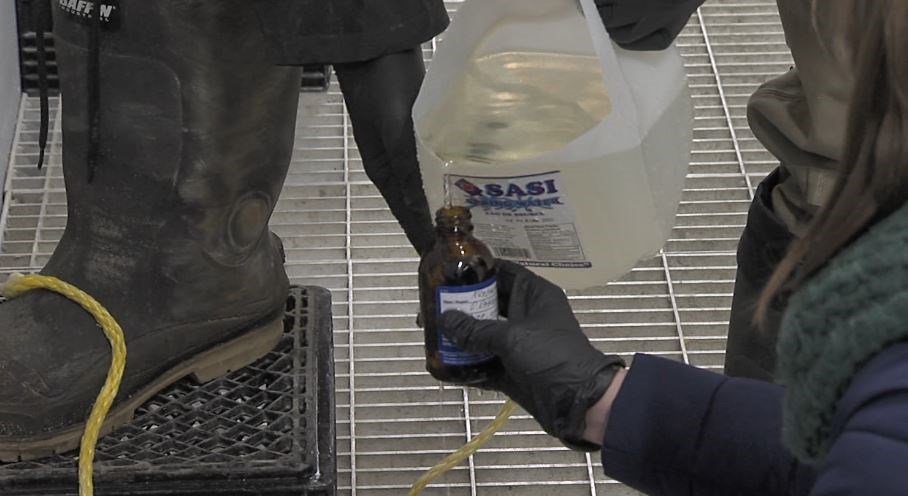THUNDER BAY – The chief of Neskantaga First Nation says running water from taps on a 24-hour basis is one of several demands that must be met before residents of his community will be allowed to return home.
It was one of seven demands issued on Thursday by Chief Chris Moonias, whose community this week declared a state of emergency after Neskantaga’s water system was completely shut down because of an oily sheen found floating atop the water.
More than 230 residents were evacuated this week to Thunder Bay.
Neskantaga has been under a boil-water advisory for 25 years, the longest running boil-water advisory in Canada. A water treatment plant was built four years ago, but delays, equipment failure and other infrastructure failures last year led to a do not consume order.
Other conditions include the immediate mobilization and installation two portable membrane package water treatment units, to avoid damage to the system from cold temperatures.
Moonias also demanded an end to the patchwork, ‘Band-Aid’ solutions that have been in place since 1994 and a firm commitment from the government to design and construct a new water treatment system that meets the highest current standards.
Other requests include a certified plumbing survey of all residences and lots in the community to assess and repair leaks and potential additional system loads, decontamination of homes and the associated repairs of water hardware, including sinks, pipes, taps and faucets and an investigation into the business practices of engineering companies and contractors.
Finally, Moonias is asking for an immediate investigation into the contributing factors behind the current water and public-health crisis.
“I have sent these conditions to Indigenous Services Minister and I expect a meaningful response and plan of action,” Moonias said in a release issued by Nishnawbe Aski Nation.
“The people of Neskantaga have suffered tremendously, and it is unacceptable that government officials have refused to recognize this as a health emergency. Our people need help now. We are First Peoples living in third-world conditions treated as second-class citizens in a supposedly rich country.”
NAN Grand Chief Alvin Fiddler has asked Prime Minister Justin Trudeau to intervene.
“In any other community in Canada the complete lack of running water would be recognized as a crisis, especially during a global pandemic,” Fiddler said.
“Chief and council are stretched to their limit to ensure the safety of their members. The federal government and everyone involved must work immediately with the leadership to meet these conditions so community members can repatriate as quickly as possible.”
Minister of Indigenous Services Marc Miller said it’s a priority to work with community leaders and other legislative bodies to ensure the necessary repairs are made as quickly as possible.
“Obviously people are pretty eager to get back and be repatriated, but (it’s) not in any condition,” Miller said, speaking with Thunder Bay Television.
“It’s a logistical challenge, but it’s something the federal government is there to support. Long-term, the federal government invested about $16.5 million in the plant, which is pretty much ready to go. There is a distribution system that is obviously not working and leaking that we’re moving to repair, as well as a connected waste-water problem.”
Miller said there are teams on the ground to address the situation, calling it entirely unacceptable, while acknowledging Neskantaga is not the only First Nations community facing water problems in Canada.
“Our government is committed to ending that.”
Miller called it a frequent and repeating problem and said they’re chipping away at it as a government, adding they’ve lifted about 100 boil-water advisories since coming to power in 2015.
“It is a constant uphill battle to build and maintain the trust with Indigenous peoples in Canada … We just have to keep proving that we’re there for them and in the long-term.”
Miller said the feds have been in constant communication with Moonias, but also said there may have been miscommunication with the community.
“If it’s on my side, I own it,” he said.
